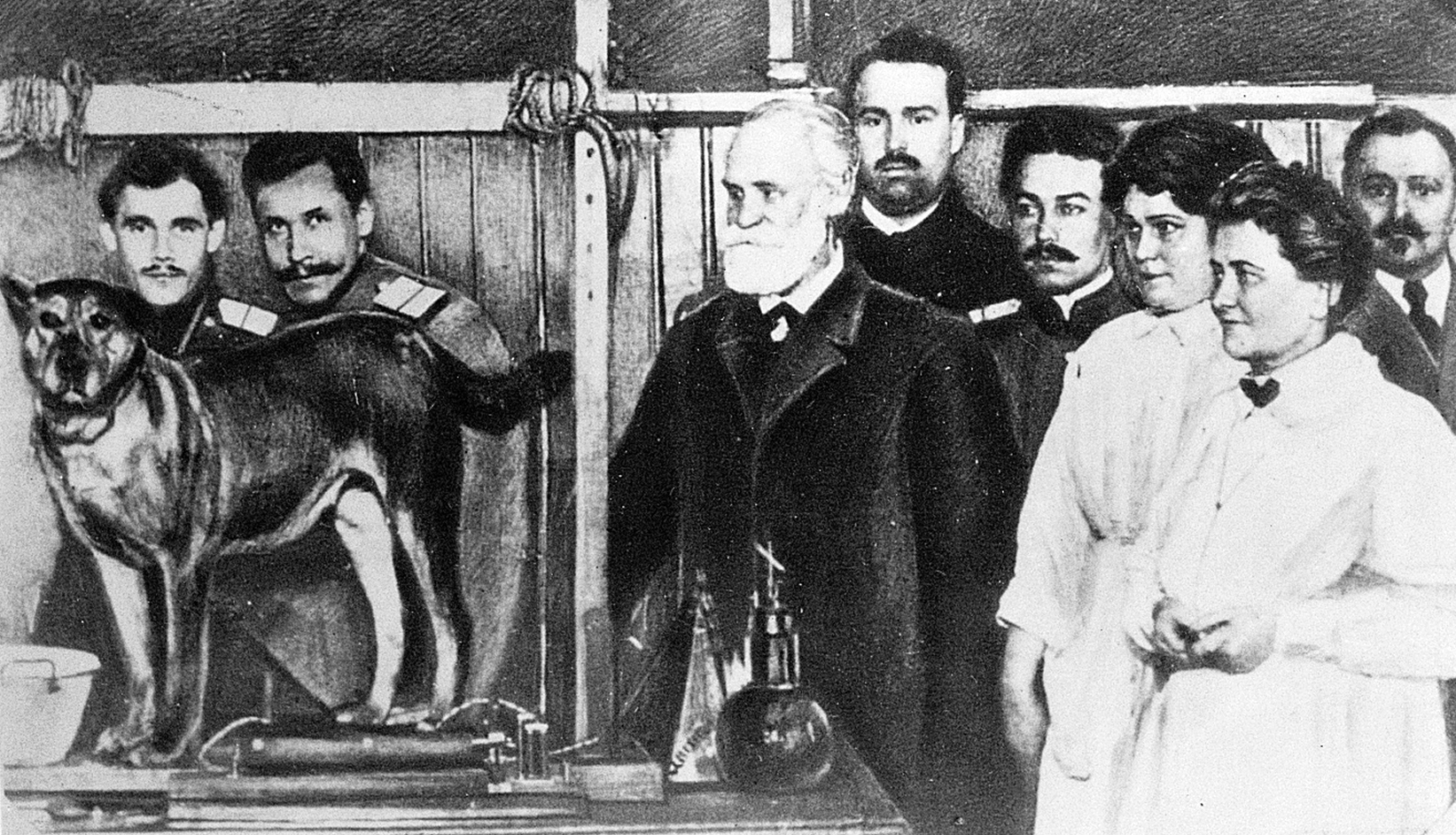Pavlov, Ivan Petrovich << PAV lov, ih VAHN peh TRAW vihch >> (1849-1936), a Russian physiologist, won the 1904 Nobel Prize in physiology or medicine for his research on digestion. He showed how the vagus nerve controls the flow of digestive juices of the stomach and pancreas. For the next 30 years, Pavlov studied brain functions. He found that, by repeated association, an artificial stimulus (such as a bell) could be substituted for a natural stimulus (food) to cause a physiological reaction (salivation). He called this a conditioned reflex. Pavlov believed that all acquired habits, and even higher mental activity, depend on chains of conditioned reflexes.

Pavlov was born on Sept. 26, 1849 (Sept. 14, 1849, according to the calendar then in use) in Ryazan, Russia. He was educated in Russia and Germany. He died on Feb. 27, 1936.
